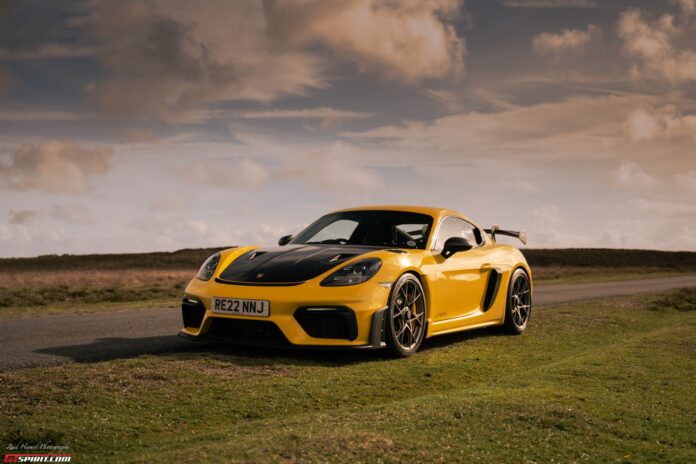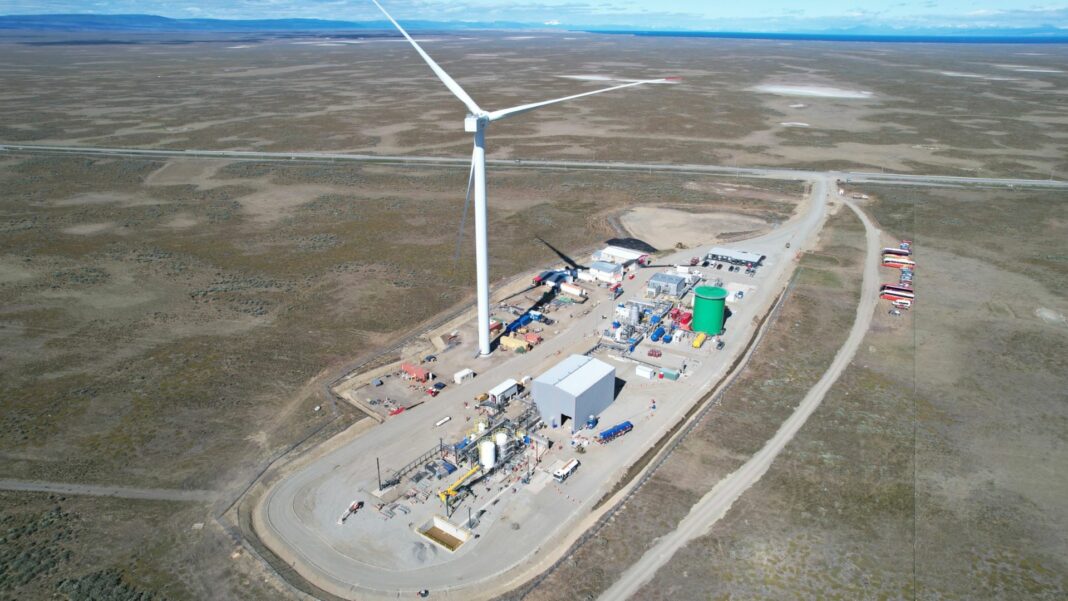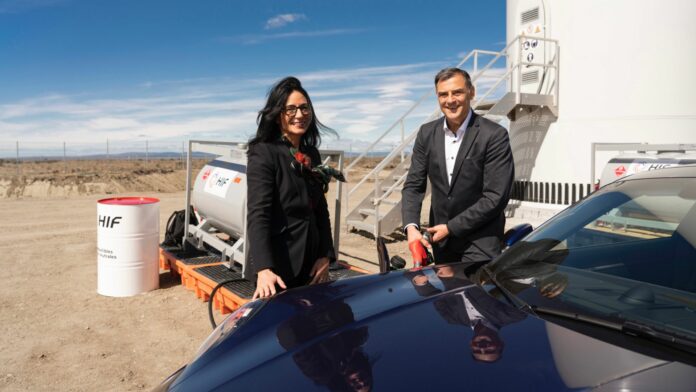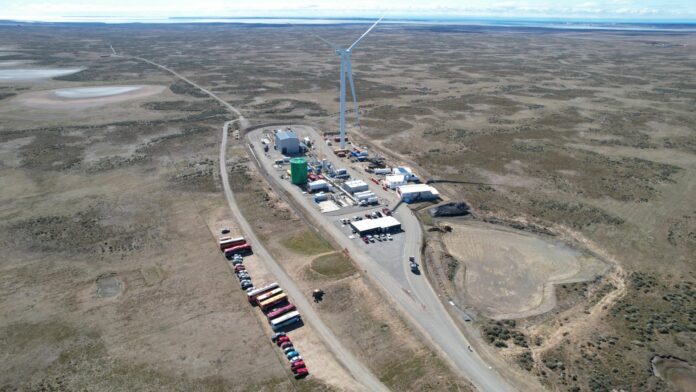Given the way that legislation, governments and environmentalists are going, it is no surprise that the overwhelming majority of automotive manufacturers are taking drastic action to shift production to full electric only ranges, some bridging the gap using hybridisation. The vast majority does not include Porsche, yes they have the Taycan and hybrids in both the Panamera and Cayenne ranges, but the 911 is yet to be touched by hybridisation, but their most legendary model is still firmly powered by petroleum.
A couple of years Porsche announced that it was exploring the production of synthetic eFuels, near carbon neutral fuel that could soon be powering cars without any modifications. Soon has become now and the Chilean plant is not only being officially opened, but the first 911 has been brimmed with the fuel that is giving hope to enthusiasts across the world.
In the presence of Chilean Energy Minister Diego Pardow, the ‘Haru Oni’ pilot plant in Punta Arenas (Chile) was officially opened last week. Porsche Executive Board members Barbara Frenkel and Michael Steiner performed the ceremonial fuelling of a Porsche 911 with the first synthetic fuel produced at the site. eFuels made from water and carbon dioxide using wind energy enable the nearly CO2-neutral operation of petrol engines.

“The potential of eFuels is huge. There are currently more than 1.3 billion vehicles with combustion engines worldwide. Many of these will be on the roads for decades to come, and eFuels offer the owners of existing cars a nearly carbon-neutral alternative. As the manufacturer of high-performance, efficient engines, Porsche has a wide range of know-how in the field of fuels,” adds Michael Steiner, Member of the Executive Board for Development and Research at Porsche AG.
In the pilot phase, eFuel production of around 130,000 litres per year is planned. Initially the fuel is to be used in lighthouse projects such as the Porsche Mobil 1 Supercup and at Porsche Experience Centers. After the pilot phase, the first scaling will take the project in Chile up to a projected 55 million litres per year by the middle of the decade. Around two years later the capacity is expected to be 550 million litres.
The south of Chile offers ideal conditions for the production of eFuels, with the wind blowing for around 270 days a year and enabling the wind turbines to operate at full capacity. Punta Arenas is also located close to the Strait of Magellan. From the port of Cabo Negro, the synthetic eFuel can be transported just like traditional fuels all over the world, and be distributed using the existing infrastructure.
Porsche is working towards a CO2-neutral balance sheet across the entire value chain by 2030. This also includes a CO2-neutral usage phase for future all-electric models. Synthetic fuels supplement electromobility and are part of the sports car manufacturer’s sustainability strategy. Porsche has already invested over 100 million USD in the development and production of eFuels. For example, the sports car manufacturer invested 75 million USD in HIF Global LLC in April 2022. This company plans, builds and operates eFuel plants in Chile, USA and Australia.



















This is epic of Porsche to have implemented this strategy and investment that I think will be tremendously appreciated by the vast amount of ICE owners who do not wish to let go of the sound and fury of high performance sports and hyper ICE cars. Like anything else in life if this takes off, and I sure hope it does, there will be a rush by others to compete, possibly even cripple Porsche’s endeavors. Sometimes the competition comes from within as well as the outside forces. For now kudo’s to Porsche.